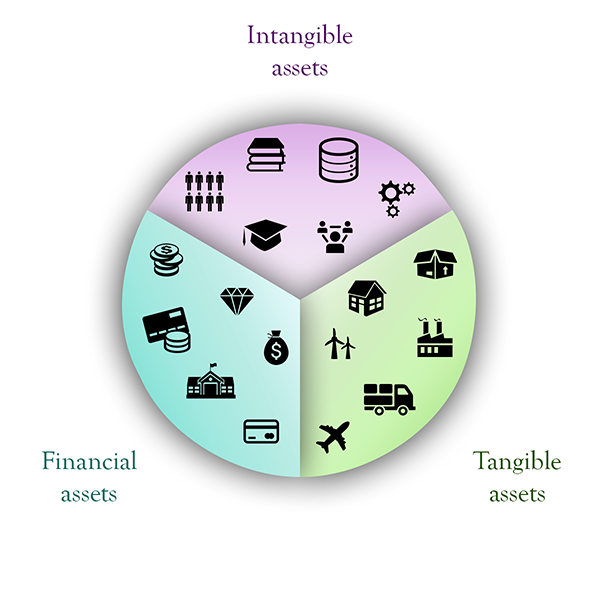

Why Management of Intangibles is so important?
Tangible and Financial assets usually first in focus, but this approach can damage vitals
Every organization has its unique history, current members and dynamics which shapes its zone of proximal development. Information system and data flows define the way organization operates and make decisions. Intangible resources such as knowledge, relationships and organizational culture are critical components of long-term sustainability
Unidentified intangibles unconsciously lead organizations to benefit or loss. Objective is to harmonize energy balance, capitalize internal knowledge, identify risks and opportunities, improve management framework to incorporate intangible factors.
Knowledge-based economy requires a shift in mindset to understand that intangible assets hold significant value and need to be consciously identified, nurtured and leveraged to maximize performance and viability.

How to set priorities in complex organizational system?
Happiness in a long-term perspective is key indicator of any human activity
From birth till death we are all participants of many organizations. People interact with each other on self-realization path and should accept appropriate roles in social structures to support this growth.
Organizations manage financial, tangible and intangible resources. They define some objectives, but ultimate goal is happiness that should be achieved by all members. Emotions is a natural compass, which helps people to find the right direction in life.
Unique mix of intangible assets is competitive advantage of organization that not available to others. Some of them fragile and can be easily lost, but others have very strong fundamental basis. They all related to people, knowledge and energy.